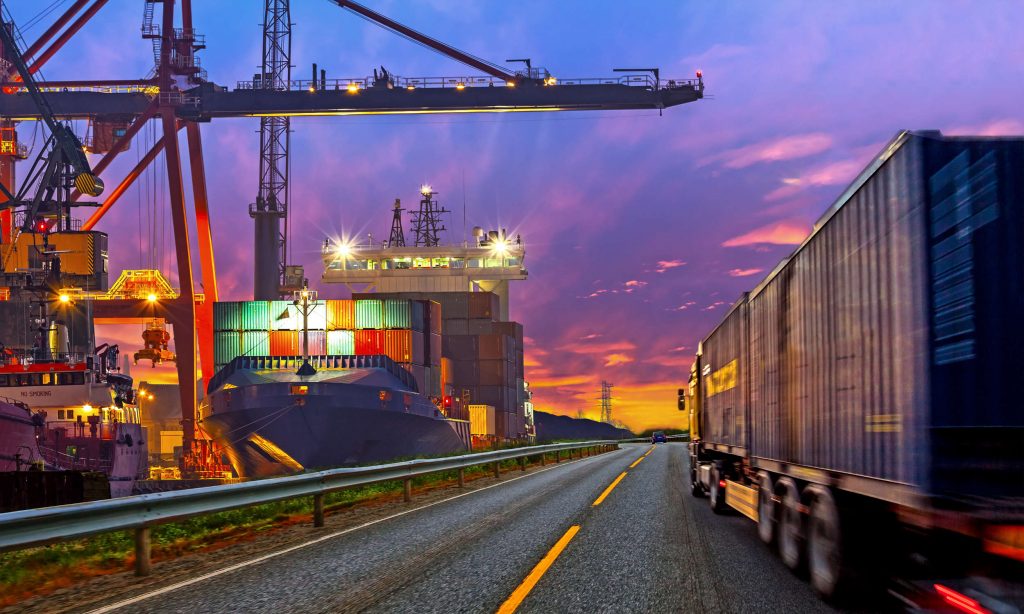Is there an alternative to Methyl Bromide CH3Br – UN1062?
By Platinum® Freight Management CEO Peter McRae

Australia is a signatory to the Montreal Protocol on Substances that Deplete the Ozone Layer, this protocol was signed in 1987 and entered into force in 1989 [thirty one years ago]. The Protocol has been ratified by 198 countries. The purpose of this Protocol is to eliminate Ozone Depleting Substances [ODS]; ODS’s commonly known as Hydrofluorocarbons [HFC’s] can be found in goods like white goods and air-conditioners but in my opinion one of the more important and forgotten ODS’s is Methyl Bromide [CH3Br] which is known as United Nations Number 1062.
Methyl Bromide is the most commonly relied upon fumigant used to fumigate goods prior to shipping by sea to Australia and also used to treat goods on-shore in Australia. There are five [5] countries who manufacture CH3Br. The Department of Agriculture, Water and the Environment heavily relies upon methyl bromide to treat goods that enter Australia; this reliance has been further escalated in recent years with the Brown Marmorated Stink Bug [BMSB] seasons.
The Montreal Protocol on Substances that Deplete the Ozone Layer, the World Customs Organisation [WCO], the World Health Organisation [WHO] and the Australian Government are all aware that methyl bromide [CH3Br] is an issue to the ozone layer. In Australia CH3Br is listed as a Prohibited Import (Prohibited Imports) Regulations 1956, Regulation 5K, Schedule 10 but fumigators in Australia are able to obtain an import permit under Section 16 of the Ozone Protection and Synthetic Greenhouse Gas Management Act 1989.
In 2016 New Zealand consumed 602,000 kilograms of CH3Br on-shore; in total the world consumed 68,400,000 kilograms of CH3Br in 1996; this does not take into account the amount of CH3Br which has been required in recent years to have goods treated for BMSB either on-shore or off-shore.
In 2017, the Australian Border Force [ABF] reported that Australia had 429,105 LCL declarations with a value over $1,000 AUD and 1,153,363 FCL declarations. In 2018, the ABF reported that Australia had 448,692 LCL declarations with a value over $1,000 AUD and 1,242,962 FCL declarations; there would be cargoes involved in this number which were not required to be fumigated but for the reporting years of 2019-2020 there were thirty three [33] countries which were required to be treated for BMSB either on-shore or off-shore.
Not every TEU needs to be fumigated off-shore or on-shore but considering that the Department of Agriculture, Water and the Environment had listed thirty three [33] countries as BMSB high risk in the 2019-2020 season, the use of CH3Br has had and will have a usage increase year on year.
The United Nations has a “road map” to 2047 where ODS’s will be eliminated; my question is: the more that Governments’ rely upon CH3Br, what will be the alternative to Methyl Bromide? The United Nations has forecast a phase down of ODS’s by 2047.
Whether a shipment has been fumigated off-shore or on-shore, the importer should receive a copy of the Material Safety Data Sheet [MSDS] for UN 1062 – Methyl Bromide [link here: http://www.inchem.org/documents/icsc/icsc/eics0109.htm] so that the importer can risk assess their workplace and employees exposure. Considering the fact that FCL shipping containers are delivered to importers premises and can be unpacked within one hour [I have never seen a forklift driver wear personal protective equipment to protect themselves from any fumigant gas residue].
About Peter McRae
Peter McRae is a Certified Customs Specialist in Canada and the USA. He is also a Certified Trade Compliance Specialist in Canada. With 20 years industry experience, McRae runs a successful customs brokerage that he founded in Australia in 2000. Platinum® Freight Management is a leading independent customs brokering and freight forwarding company operating in Australia and with international offices, including New Zealand and soon Canada.
In 2015 McRae was named one of the top Australian customs brokers at the annual Shipping and Maritime Industry Awards.
With his extensive experience, McRae guides clients, from individuals to SMEs and large businesses, through the complex and little understood Customs system for importing and exporting.
McRae holds a Masters of International Customs Law and Administration as well as a Masters of International Revenue Administration through the University of Canberra.
He has taught Customs Brokering at Australia’s TAFE education institution for nine years and is an Adjunct Lecturer at the Australian Graduate School of Policing and Security through Charles Sturt University.
Platinum® Freight also runs professional industry workshops to educate businesses about Customs processes.
